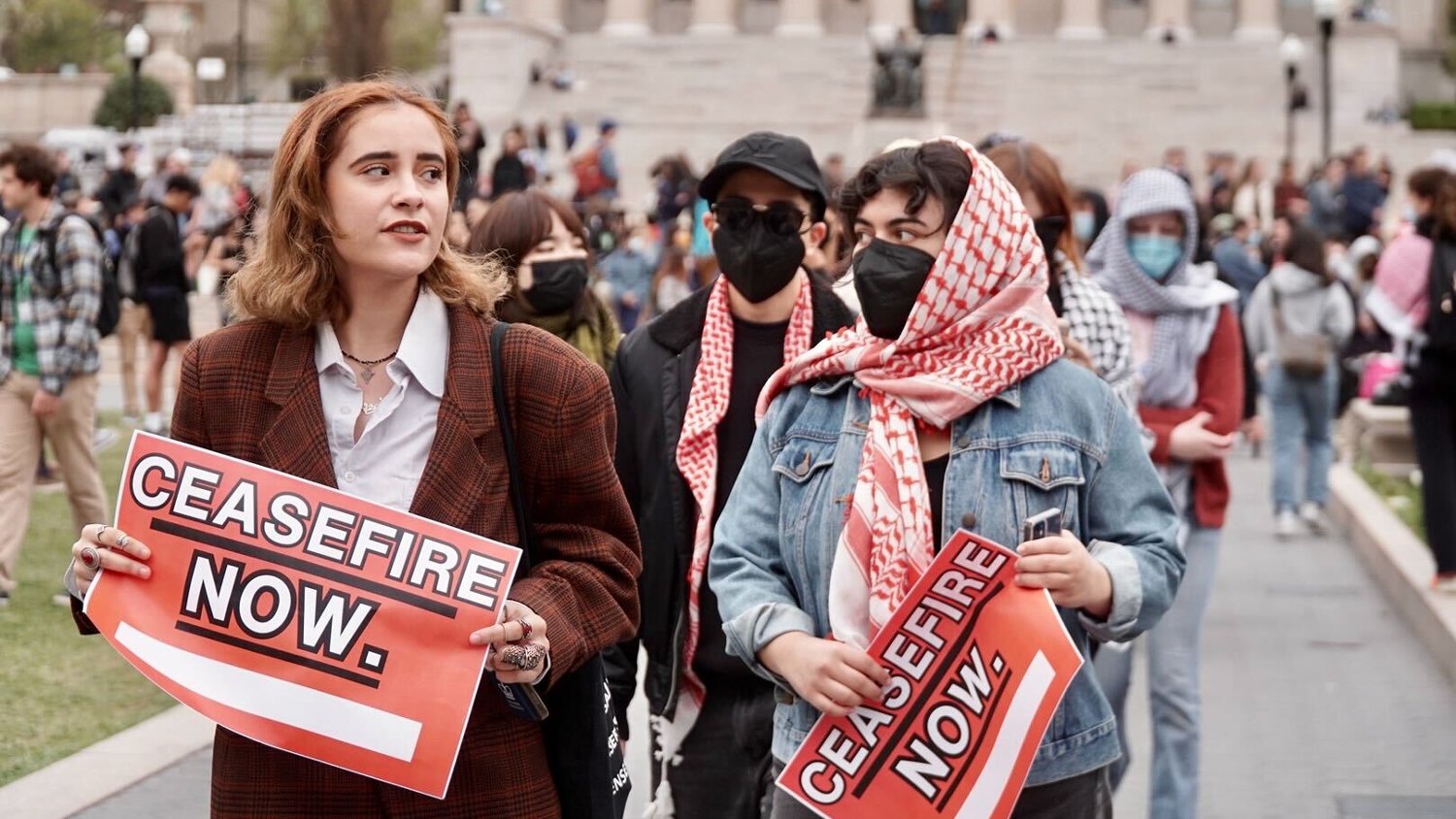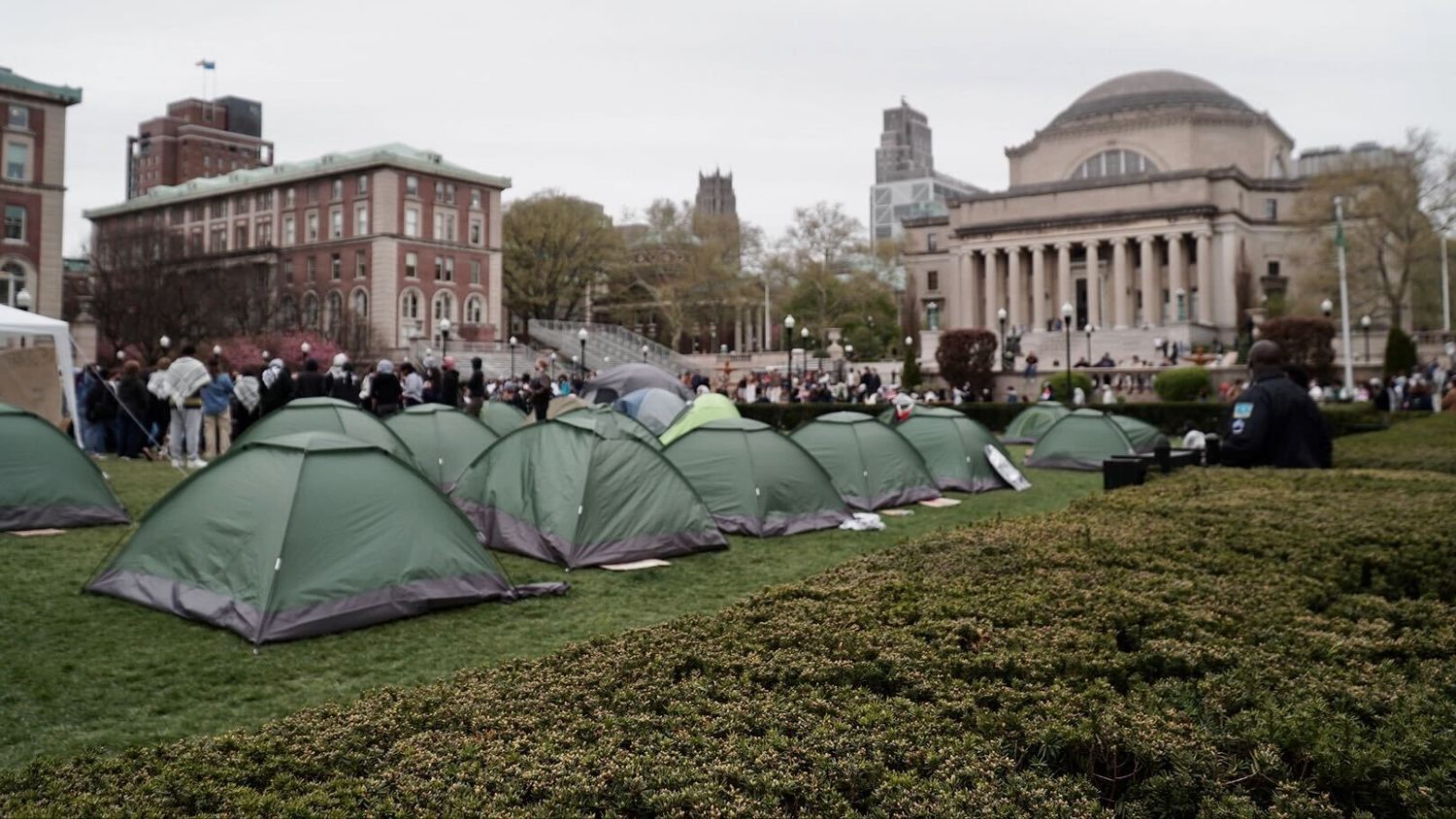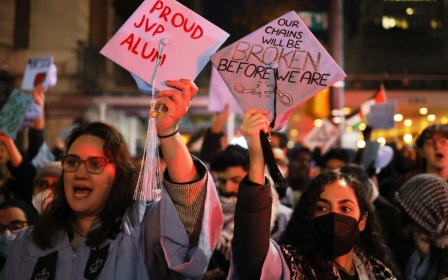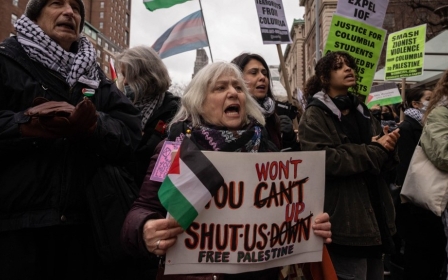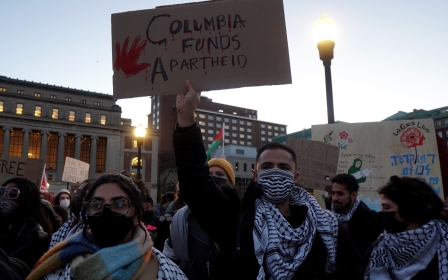Columbia University students stage Vietnam-era anti-war protests for Gaza
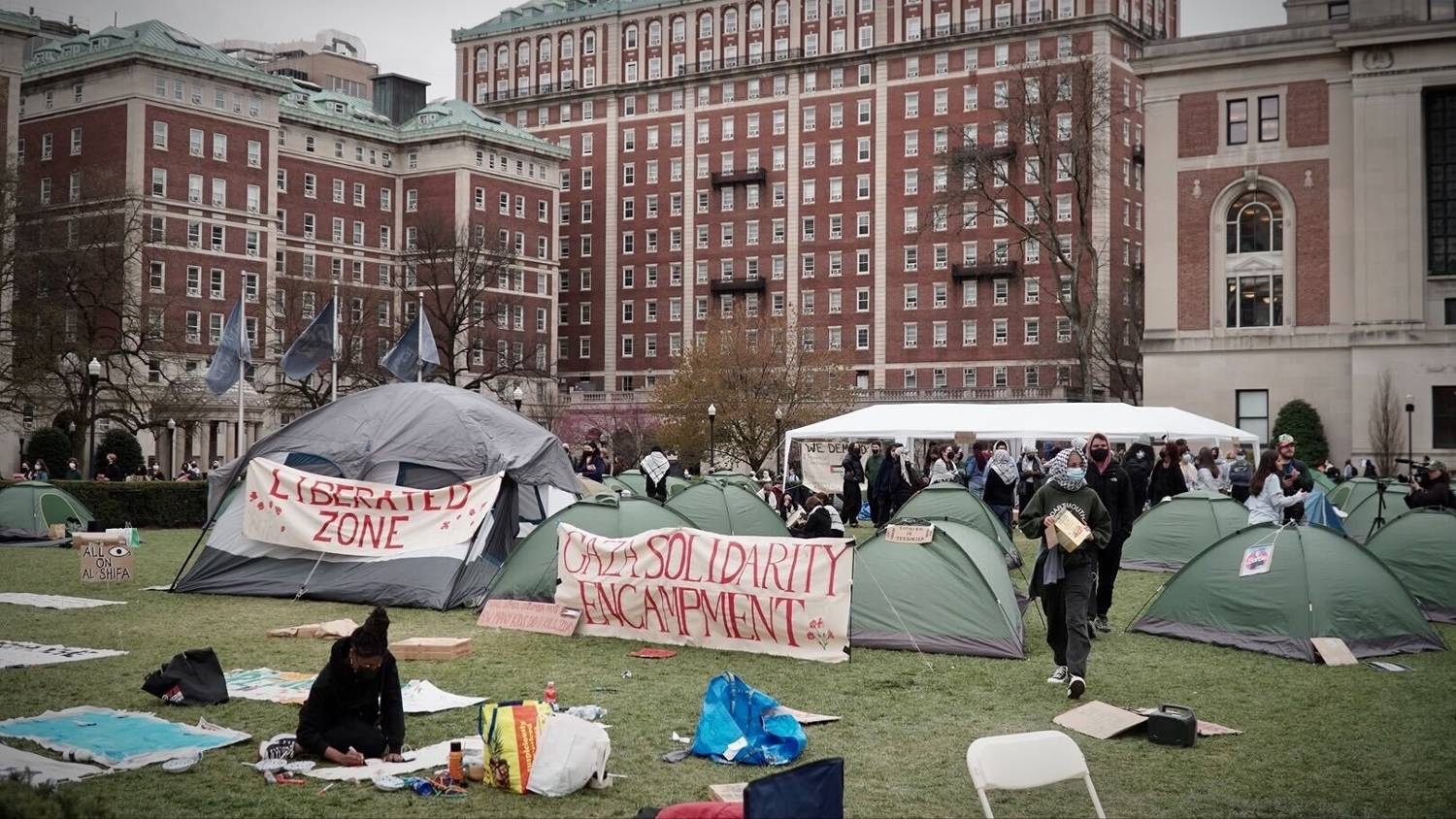
Hundreds of Columbia students have staged a Vietnam-style encampment inside the main campus of the university in solidarity with Palestinians in Gaza, in defiance of what they say is repression of pro-Palestinian protests at the Ivy League school in New York City.
The action on Wednesday morning organised by several groups including Columbia University Apartheid Divest, Students for Justice in Palestine, and Jewish Voice for Peace, began hours before Columbia University President Minouche Shafik’s testimony was expected before the US House Committee on Education and the Workforce.
The Gaza solidarity encampment is the latest student-led action at Columbia geared to force administrators to divest from companies and institutions they deem to be profiteering from Israel's "apartheid, genocide and occupation" in Palestine.
"We set up an encampment of around 50 tents. We are going to be creating our version of the university because we no longer recognise the university that we joined because of the repression and the severe encroachment of academic freedom," Maryam Alwan, a student activist who joined the camp-out at the university, told Middle East Eye.
"We will not be leaving from our position until our school divests from all funds that are going to this genocide," Alwan said.
New MEE newsletter: Jerusalem Dispatch
Sign up to get the latest insights and analysis on Israel-Palestine, alongside Turkey Unpacked and other MEE newsletters
Students said they arrived as early as 2am local time on Wednesday morning to evade security and set up a camp on the campus in Harlem.
On Wednesday, the campus was heavily fortified, with only those with Columbia identity cards allowed to enter the sprawling campus. University authorities also issued a media moratorium until May 19.
A university spokesperson told MEE that the presence of tents on South Lawn was "a safety concern and a violation of university policies".
"We are informing the students they are in violation of university policies and for their own safety and for the operation of the university they need to leave," the spokesperson said.
Threatened with the very real prospect of the camp being disbanded by administrators and protesters facing potential arrest, several hundred students took turns on Wednesday to march around the site to offer both protection and solidarity with the protesters.
Since Israel's war on Gaza began, following a Hamas-led attack on Israel on 7 October, university students across the United States have been at the forefront of calling for both a permanent ceasefire in Gaza and an end to the complicity of their universities in Israel's war on Gaza.
Pro-Palestinian students have accused universities of attempting to censor or stifle support for Palestine on their campuses.
In a statement sent to MEE ahead of the protest action, students said their protest at Columbia carried forward the "rich legacy of student activism, from anti-Vietnam War protests in 1968 to being the first Ivy League school to divest from Apartheid South Africa in 1985".
"As students at this institution, it is our responsibility to stand against our inherent complicity in genocide and ethnic cleansing from Palestine to Harlem.
"We refuse to accept a world where the death of over 30,000 Palestinians is normal, acceptable, or profitable."
"We are in total solidarity with the Palestinian liberation movement, who resiliently resist decades of occupation, apartheid, and genocide. We remain steadfast in our commitment to see a free Palestine within our lifetime," the students added.
Students said they would be hosting teach-ins at the camp about the history of the anti-apartheid movement on campus and would be focusing on building a community around their activism and demands.
Alumni of schools like New York University have pledged to hold back their donations until the university stops infringing on the rights of students and faculty to speak their minds on campuses.
The schools have also come under pressure from wealthy donors who have accused the schools of failing to crack down on antisemitism on the campuses.
Middle East Eye delivers independent and unrivalled coverage and analysis of the Middle East, North Africa and beyond. To learn more about republishing this content and the associated fees, please fill out this form. More about MEE can be found here.


